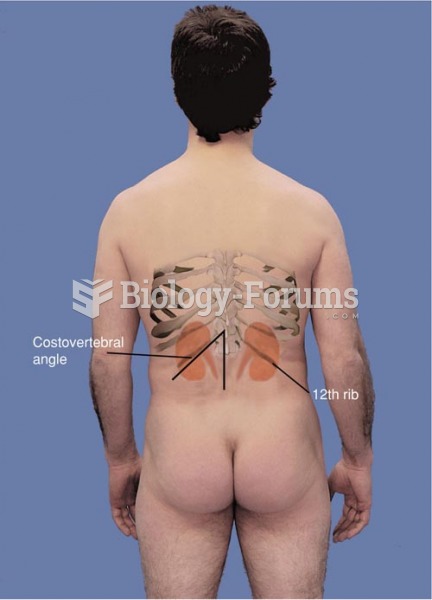This topic contains a solution. Click here to go to the answer
|
|
|
Did you know?
Cyanide works by making the human body unable to use oxygen.
Did you know?
The word drug comes from the Dutch word droog (meaning "dry"). For centuries, most drugs came from dried plants, hence the name.
Did you know?
Women are 50% to 75% more likely than men to experience an adverse drug reaction.
Did you know?
The longest a person has survived after a heart transplant is 24 years.
Did you know?
On average, someone in the United States has a stroke about every 40 seconds. This is about 795,000 people per year.







